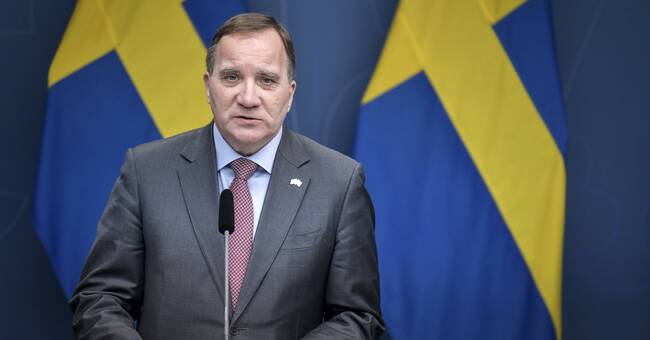Prime Minister Stefan Löfven chose, as expected, not to touch any of the Social Democratic ministers.
Friday's government reshuffle therefore became a pure MP story.
Per Bolund's elevation to Minister of the Environment and Climate and Deputy Prime Minister was expected, as was the appointment of the new spokesperson Märta Stenevi as Minister for Gender Equality and Housing.
Åsa Lindhagen thus had to move and instead becomes Minister of Financial Markets.
The State Secretary at the Ministry of Foreign Affairs, Per Olsson Fridh, was appointed new Minister for Development Aid.
Amanda Lind will remain as Minister of Culture.
Dangerously close to the Riksdag barrier
The hope within the Green Party is that this refurnishing in the government will pave the way for a political new start before the next election campaign.
Right now, the situation is worrying.
In SVT / Novus' latest voter barometer, the party received only 4.1 percent, dangerously close to the parliamentary barrier.
However, neither mouthpiece changes nor government reshuffles are far from a guarantee that the winds of opinion will turn.
On the contrary, it does not usually have any major effects on public opinion, at least not in the short term.
Ministers often need time to grow into their roles before they can begin to make an impression in the debate.
In addition, several of the Green Party's ministerial posts are in areas that there is currently not much media focus on.
Exception: Bolund
An exception here is of course Per Bolund.
As Minister of the Environment and Climate and Deputy Prime Minister, he has good opportunities to profile himself when the corona crisis subsides, which may well happen this year.
Otherwise, right now completely different issues dominate the domestic policy agenda.
The focus is almost entirely on the corona pandemic, where Social Democratic ministers are responsible for most of the government's work.
No wonder then that the MP ministers came into the shadows and that the party had a hard time proving itself relevant during the corona crisis.
Migration - a conflict issue
Another issue that could be of great importance to the government, and perhaps also to its survival, is migration policy.
Its importance is also underlined by the fact that it was one of the few concrete issues, which had nothing to do with the actual government reshuffle, that was raised at the Prime Minister's press conference with the new ministers.
Migration is one of the major issues of conflict between the Social Democrats and the Green Party, and the situation is now further complicated by the Liberals threatening to leave January cooperation unless the government tightens the proposal for a humanitarian protection basis.
Can crack the government
Migration policy is also a highly topical issue.
A proposal for a new migration law should be ready as early as next month.
The Riksdag will then make a decision in the spring and the law is intended to enter into force this summer.
Already in the past, this law has been close to cracking the government.
This summer, for example, the Green Party threatened to leave if the Social Democrats settled with the bourgeois parties on the issue.
So now it is the Liberals who are threatening to leave the January cooperation on the issue.
If this happens, there will be a government crisis, and the new MP ministers risk a short and turbulent time in office.
At the same time, it is mainly the Green Party that opposes the Liberals' demands here.
Löfvens fox shears
Stefan Löfven puts all this in a foxhole.
He would probably not mind meeting the Liberals' demands for a stricter humanitarian protection basis, but must then reckon that instead the Green Party threatens to break up the government.
The question is how far the new MPs are prepared to go?
No matter what, they can count on being thrown into the hot air directly at their new ministerial posts.
But maybe in a different way than they wanted.

